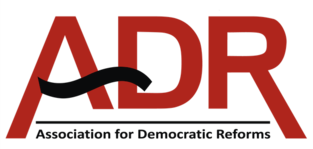Chief Election Commissioner Dr SY Quraishi stresses payments by cheques and independent audit as the way out. He was speaking at Moneylife Foundation’s event, “Democracy at Crossroads—Need for Electoral Reforms”
One of the biggest problems in the conduct of free and fair elections is black money. Chief Election Commissioner (CEC) Dr SY Quraishi, speaking at seminar organised by Moneylife Foundation and V Citizens Action Network (VCAN), brought up the issue of black money flowing into elections and that checking the use of this illicit money is one of the top reform proposals of the Election Commission (EC). “No candidate is spending white money, but black money. I don’t know how state sponsorship of elections will solve the problem. The moment a minister comes into power; his target is to recover the money he spent in the election. He convinces the bureaucracy to help him, and the people have to pay for them”, he said.
According to an estimate, in the recent elections the Election Commission confiscated over Rs45 crore of unaccounted cash. The answer, says Dr Quraishi is, “transparency in financial transactions and independent auditing of accounts of candidates. For this we engaged the Chartered Accountants Association to come up with accounting standards.” The accounts of political parties were often audited by their own accountants. It was not independent. We have now specified independent audits.”
According to a proposal by the Election Commission (EC) dated 15 July 1998, “The political parties should be legally required to get their accounts audited annually. The audited accounts should be put in public domain. There should be transparency in the fund raising and expenditure of political parties.” The EC considers that the political parties have a responsibility to maintain proper accounts of their income and expenditure and get them audited by agencies specified by the Commission annually. While making this proposal in 1998, the Commission had mentioned that there was strong need for transparency in the matter of collection of funds by the political parties and also about the manner in which those funds are expended by them.
In an amendment, vide the Election and Other Related Laws (Amendment) Act, 2003, a provision has been made regarding preparation of a report of contributions received by political parties in excess of Rs20,000. However this is not sufficient enough to ensure transparency and accountability. Sub-section (1) of section 77 of the Representation of the People Act, 1951 (43 of 1951) says that “it is an obligation on every candidate at an election to the House of the People or a State Legislative Assembly to keep, either by himself or by his election agent, a separate and correct account of all expenditure in connection with the election incurred or authorised by him or by his election agent between the date on which he has been nominated and the date of declaration of the result thereof, both dates inclusive. Failure to keep such an account is a criminal offence punishable under section 171-I of IPC (Indian Penal Code). Every candidate, or his election agent, is expected to keep a separate and correct account of all expenditure in connection with an election to the House of the People, or to the Legislative Assembly of a State, incurred or authorised by him, or by his election agent, between the date on which he has been nominated and the date of declaration of the result of the election, both days inclusive”. However, there is no current provision where the account needs to be audited and many find ways to by pass these accounting requirements.
Therefore, the EC has proposed that the political parties must be required to publish their accounts (at least abridged version) annually for information and scrutiny of the general public and all concerned, for which purpose the maintenance of such accounts and their auditing to ensure their accuracy is a pre-requisite. The EC reiterates these proposals with the modification that the auditing may be done by any firm of auditors approved by the Comptroller and Auditor General (CAG). The audited accounts should be available for information of the public. For the same, Institute of Chartered Accountants of India (ICAI) along with the Election Commission has come up with auditing standards under which all expenses incurred should be by way of cheques, there would be independent audits ensuring complete disclosure.
The guidelines, prepared by ICAI, will soon be notified by the Election Commission to the concerned parties. The Commission approved the norms that ICAI has framed which will act as guidance for accounting and auditing of the financial records of political parties. The new norms will enable political parties to conduct their finances in a corporate-like manner by getting their accounts audited and publishing their audited finance sheets annually. The ICAI recommended norms will ensure that “all political parties registered with the Election Commission of India may be mandated to apply accrual basis of accounting (reporting transactions on a real-time basis).”






